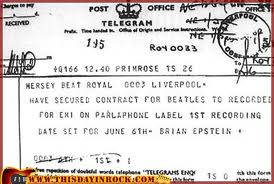 Musicians are typically not lawyers as well. If that’s true of you too, then this definitely puts you at a disadvantage when it comes to reading, reviewing, understanding, agreeing to and signing music contracts . Music business contracts can be complicated and confusing if you are not trained or have a legal background.
Musicians are typically not lawyers as well. If that’s true of you too, then this definitely puts you at a disadvantage when it comes to reading, reviewing, understanding, agreeing to and signing music contracts . Music business contracts can be complicated and confusing if you are not trained or have a legal background.
Over the next few paragraphs, we will look at and define some of the most common jargon used in music recording contracts.
The first term – “the deal” – is obviously the agreement you are making with the label. It will essentially define what royalties you will be paid from the profits of your music. Some recording contracts may include a monetary advance. This allows the artists to get the ball rolling. They can get new equipment, new wardrobe, voice lessons, a car, a home, whatever they desire to get them going. Keep in mind, this money has to be paid back with future earnings, it is a loan not a gift (this is known as “recoupment” in musical parlance).
Cross-recoupment or “cross-collateralization” is the recovery of advances, costs or losses from other projects – watch out here! You may be paying for your first album’s losses from your second and third’s incomes…!
“Exclusivity” is a word you will run across quite a few times in music business contracts. This includes all of the things that are exclusively owned by the record company. They may want to own your present work, past work and future work. They most likely will own your logo, website, all merchandise, images and names. All of those things will be exclusive to their company! Be prepared to negotiate hard.
The “territory” of your music contracts is important and needs to be defined. Laws and rules are different in every country and you need to make sure you music and rights are protected world-wide, ideally. Different countries have different laws about copyrights and things to that effect. Just be sure the music business contract defines this.
How long is your contract for? This is referred to as the “term” of the contract. Is it two years, seven years, two albums, eight albums? It is crucial to define the longevity of recording contracts as soon as possible.
A recording contract can contain a great deal of jargon. You may have to read over it several times or ask for the help of someone who know what they are doing. A lawyer, ideally! Make sure you understand copyrights, publishing deals, recording agreements, promotion terms, and all the other ins and outs of your music contracts before you sign.